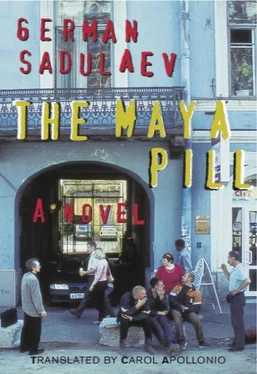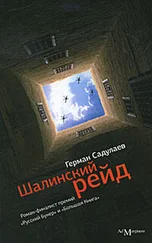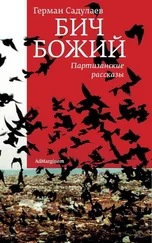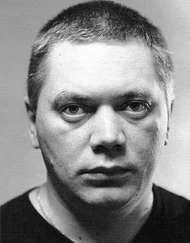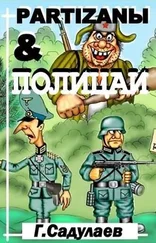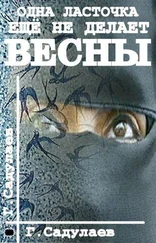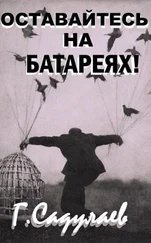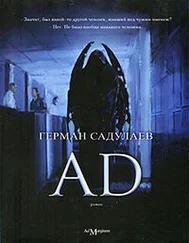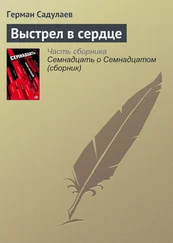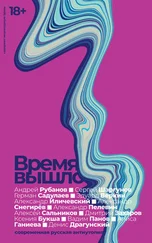My very first Cadillac, and also my last…
Now here I am at five or six. I’m in a little dress coat, with a white dickey and a bow tie on an elastic band around my neck. My handsome father, mustached and decked out in a fine suit, is holding my right hand. My beautiful mother, wearing a fancy dress and with her hair freshly permed, is holding my left hand. We are strolling along the seaside promenade in the resort city of Sochi, a fantastical place where we have access to everything—beaches and swimming pools, amusements and rides, restaurants with their Chicken Tabaka and wondrous Pepsi Cola.
At that time my father had been a man of some authority with a promising career, a government official in the Soviet economic system; my mother was that rarity, a stay-at-home housewife.
Soon afterward, my father’s career collapsed due to an excessive and misplaced adherence to principle. After that he became a low-level employee in the statistics department of some pointless agency, and my mother took a job as a schoolteacher. These scenes in my little filmstrip are gray and melancholy.
Now I am seven. Or eight. No, still seven, that’s right; it’s New Year’s Eve. 1980 will be the year of the Moscow Olympics. I’ve been assigned to play the role of the New Year itself, in the form of a frisky little bear cub. In the store, though, my mother sees the price tag on the bear costume, takes me by the hand, and leads me home without a word. At the pageant I run around inside the circle dance wearing a pair of simple red pedal pushers, with two big cardboard ears attached to my head. Hot tears roll down my cheeks. The first adult tears of my young life.
And my first cardboard ears—I will continue to wear them throughout my life, in one form or another.
After that everything pretty much continues in exactly the same way, just one thing after another.
My next pair of shoes are mud-colored Speedsters. They look utterly ridiculous, like clown shoes on my feet, which are already too big and flat as it is. But I’m only ten, no more, and it’s not that big a deal at that point in my life. The problem is that my feet hurt. The shoes chafe and cause bloody calluses. Mom says that I’ll get used to it; I have to break them in. But before she can turn away I see the tears in her eyes. Indeed, she was giving me false hope; the strange material that my shoes are made of doesn’t stretch or ease with time; it just dries out and forms hard bumps in random places on the inside.
Now comes a longer story. I have a dream: I want to get a bike. An Eaglet or a Stork. With big wheels, a bright shiny frame, and a heavy chain liberally lubricated with motor oil. And of course with orange and red reflectors on the back fender. I already have the reflectors: I swapped a stamp collection for them with a kid at school. My older sister had been collecting stamps for a long time, since she was small, and now she had no use for them. Probably. I mean, she didn’t even remember them. So I had the reflectors, just no bike. And my parents didn’t have any money to spare. Bikes are expensive—eighty rubles!
I’m no pauper, though. I’m already grown up and I can earn the money all by myself. I’m twelve, almost thirteen. So I manage to get a job over summer vacation at the loading dock at a food processing plant. It’s against Soviet labor law; I’m still considered a child. But they write me into the paperwork as sixteen. And indeed even at twelve I’m tall and broad-shouldered and look, if not quite sixteen, fifteen at least. Or no younger than fourteen, that’s how I look at twelve. So I spend the whole summer lifting and hauling heavy boxes of canned food.
But it’s not so bad, really; since I’m a minor I don’t have to work a full eight-hour day. My shift starts around lunchtime; I can sleep in and have breakfast at home. My coworkers and I have lunch at the plant, eating the same canned food that we’re hauling from the shop to the warehouse. We’re just following the unspoken rule of Socialist production: Eat as much as you want on the job, just don’t take any food offsite except in your stomach.
I go home in the evening. The noise of the kids playing outside doesn’t tempt me. I’m too tired. I don’t have a bike anyway, so I can’t join the others in their races or forays into other neighborhoods. Soon, though—soon I will have my own bike and then I can go out at night and ride around with my friends. I take a shower, making big plans, put on my pajamas, and go to bed. I read in bed until I fall asleep with the book still in my hands.
Just before the beginning of the school year, with summer vacation coming to an end, I quit my job and pick up my pay, in cash, at the payroll office. It’s a small wad of crumpled, greasy one-ruble bills, sassy green threes, and even a few crisp blue fives. Plus a few nickel and copper coins, every minute accounted for down to the last kopeck.
I went home that day solemn and proud. I’d grown up. I became a man that day as I walked home from work, feeling the money in my pocket, the first money I’d ever earned. An initiation, like in tribes of hunters when a boy becomes a man by making his first kill in the forest and bringing it home to his family’s hearth.
I felt nothing like that later, several years later, when for the first time I plunged my jasper root into that moist, quivering crevice, if you will… My first time. Nothing poetic, just disgust and a drained, wasted feeling. Thirty seconds, a little friction, and I dispatched my entire arsenal, with its crew of cosmonauts, on a one-way trip into the chasm, that black hole beyond the scarlet petals, never to return. I felt nothing, no communion with a new life, no sense of belonging in a marvelous new world full of potential and bliss. Just disgust and a drained, wasted feeling. Primitive, animal shame.
Because I had become a man long before, that first time I received money for my hard labor and brought it home to my family.
I brought the money home and handed it over to my mother, the bills, that is; the coins remained in my pocket. There had been enough to buy a bike, even with a little left over. I had chosen the bike I wanted long before and had shown it to my mother several times already. It was a blue-frame Stork; they had it in the department store, in the sporting goods section on the first floor.
The next day Mom came into my room and, maintaining a tense silence, without looking at me, started randomly pulling books off my shelf. They were arranged in alphabetical order, side by side. She’d take a few out, wipe nonexistent dust off the clean surface of the shelf, and then put them back, out of order. Without a word. Without looking at me.
“Ma?” I asked.
They weren’t going to get me the bike. A pair of second-hand Italian demi boots had turned up, just perfect for my big sister. A rare find, the right size, but there wasn’t enough money to cover them. I loved my sister, didn’t I?
It was at that moment that I understood what it meant to be a man. No yelling or hysterics; I didn’t get upset and wasn’t even that surprised. I was already grown up, was a man. Work hard, earn money. The money will go somewhere else, not to you and not for you. Work hard, earn money, and turn it over to women. Man’s burden, white or black, doesn’t matter .
My only reaction was to skip meals and shun my family for three days. I sat in my room and stared at the little pile of coins, the sixty, seventy kopecks I had to show for my whole summer’s labor.
Then came adolescence, classmates, weddings, friends in Adidas tracksuits, bleached-out, rolled-up jeans. Me, though—I was big, awkward, blighted with acne, and everything I wore was cheap, gray, and out of fashion. Someone gave my father a bolt of some generic, coarse fabric and took me to the tailor to have a suit made, to make me look more presentable. It was cheaper that way. He did try, my father. But nothing came of it; I don’t remember why.
Читать дальше
